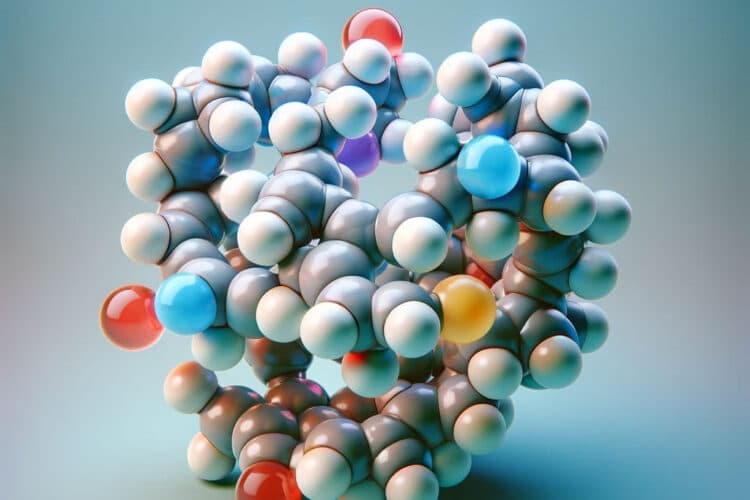Manuka honey is a unique type of honey that is primarily produced in New Zealand and Australia. It is known for its potent antibacterial and anti-inflammatory properties, which make it a popular natural remedy for a variety of health conditions. In recent years, there has been growing interest in the potential hormonal impact of manuka honey.
Key Takeaways
- Manuka honey is a unique type of honey with potent antibacterial and anti-inflammatory properties.
- Hormones are chemical messengers that play a crucial role in regulating bodily functions.
- Limited research suggests that manuka honey may have a positive impact on male and female hormones, but more research is needed.

Understanding Manuka Honey
Manuka honey is a type of honey that is produced in New Zealand by bees that pollinate the manuka bush. It is known for its unique antibacterial properties, which are attributed to its high concentration of methylglyoxal (MGO). The higher the MGO content, the more potent the honey’s antibacterial properties are.
Manuka honey is also rich in antioxidants, which can help to protect the body against damage caused by free radicals. Additionally, it contains a range of vitamins and minerals, including vitamin B6, thiamin, niacin, riboflavin, calcium, copper, iron, magnesium, manganese, phosphorus, potassium, sodium, and zinc.
The use of manuka honey for hormonal balance is a topic of interest, as some studies have suggested that it may have a positive effect on testosterone levels. However, more research is needed in this area to fully understand the potential benefits and risks of using manuka honey for hormonal balance.
Hormonal Impact of Manuka Honey
Manuka honey has been found to have a positive impact on hormones, specifically testosterone. Research has suggested that honey, including Manuka honey, may contribute to an increase in testosterone production. A study found that consuming honey can lead to increases in sperm counts and testosterone levels.
Mechanistically, honey may increase serum levels of testosterone by increasing the production of luteinizing hormone, enhancing the viability of Leydig cells, reducing oxidative damage in Leydig cells, enhancing StAR gene expression, and inhibiting aromatase activity in the testes. The phytoestrogen (estrogen-like) compounds found in honey are responsible for the restoration of the atrophied uterus and vagina. A recent in vitro study involving MCF-7 cell cultures found that, at low concentrations, Manuka honey contributed estrogenic effects by stimulating cell growth (estrogen agonist).
Manuka Honey and Female Hormones
Menopause
Manuka honey is a natural source of phytoestrogens, which are compounds that mimic the effects of estrogen in the body. As women go through menopause, their estrogen levels decrease, leading to symptoms such as hot flashes, mood swings, and vaginal dryness. By consuming Manuka honey, women may be able to alleviate some of these symptoms, as the phytoestrogens in the honey can help to balance hormone levels.
Pregnancy
During pregnancy, women experience significant changes in their hormone levels as their bodies prepare for childbirth. Manuka honey may be beneficial during this time, as it has been shown to have antibacterial and anti-inflammatory properties, which can help prevent infections and reduce inflammation in the body. However, it is important for pregnant women to consult with their healthcare provider before consuming Manuka honey, as there is a risk of botulism if the honey is contaminated.

Menstruation
Some women experience hormonal imbalances during their menstrual cycle, which can lead to symptoms such as mood swings, bloating, and cramps. Manuka honey may be able to help alleviate these symptoms, as it contains antioxidants and anti-inflammatory compounds that can help reduce inflammation and pain in the body. Additionally, the phytoestrogens in the honey may help to balance hormone levels and reduce the severity of menstrual symptoms.
Manuka Honey and Male Hormones
Manuka honey has been found to have a positive impact on male hormones. Testosterone is the primary male sex hormone and is responsible for the development of male reproductive tissues and secondary sexual characteristics. Studies have shown that the consumption of Manuka honey can help increase testosterone levels in men.
Manuka honey contains natural sugars and amino acids that are essential for the production of testosterone. It also contains antioxidants that help protect the body from oxidative stress, which can negatively impact testosterone levels. Additionally, Manuka honey has anti-inflammatory properties that can reduce inflammation in the body, which is also linked to low testosterone levels.
Potential Risks and Side Effects
While Manuka honey is generally considered safe, there are potential risks and side effects that users should be aware of. Here are some of them:
Allergic reactions
Like any other honey, Manuka honey can cause allergic reactions in some people. Symptoms of an allergic reaction may include itching, swelling, and difficulty breathing. People with a known allergy to honey or bee stings should avoid using Manuka honey.
High sugar content
Manuka honey is high in sugar and calories, which can lead to weight gain and other health problems if consumed in excess. People with diabetes should be especially cautious when using Manuka honey and should consult with their healthcare provider before using it.

Contamination
There is a risk of contamination with Manuka honey, especially if it is not properly stored or handled. Contamination can lead to food poisoning and other health problems. To reduce the risk of contamination, users should purchase Manuka honey from a reputable source and store it properly.
Interactions with medications
Manuka honey may interact with certain medications, including blood thinners and antibiotics. Users should consult with their healthcare provider before using Manuka honey if they are taking any medications.

